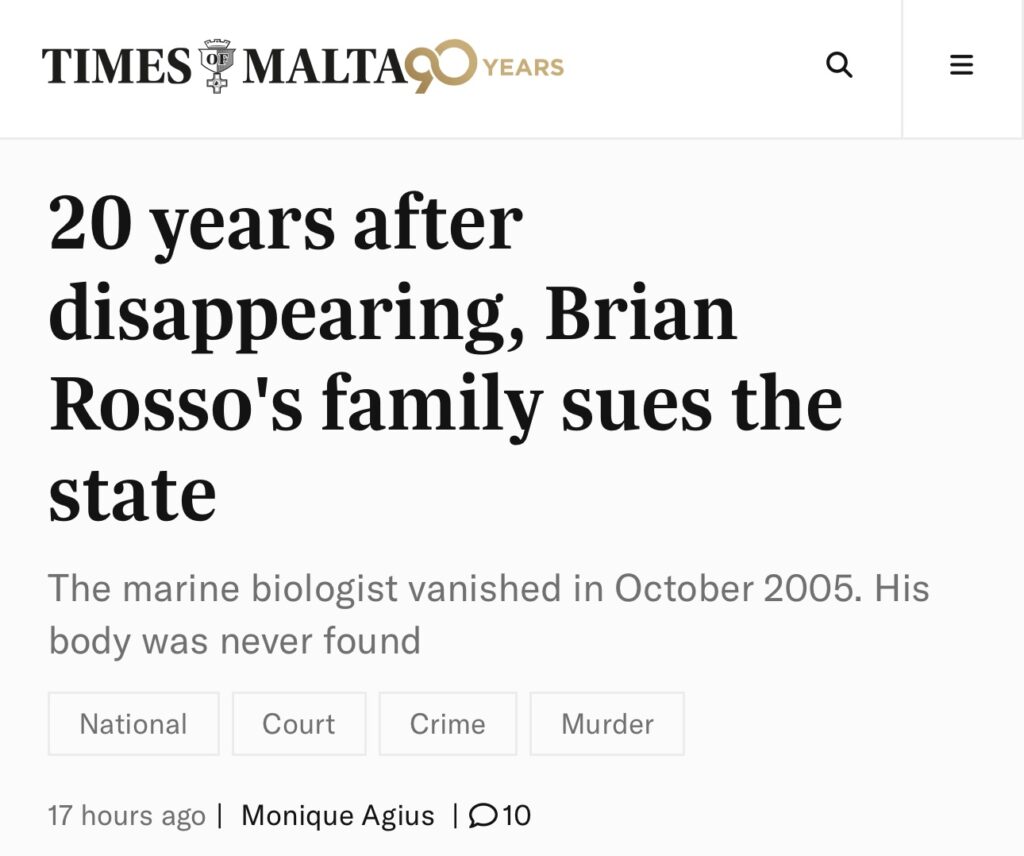In what can only be described as a scandalous chapter in the annals of justice, the 2005 disappearance of Albert Brian Rosso unravels a tale of incompetence and alleged negligence during a tragically flawed era.

Under the so-called leadership of then-Minister Tonio Borg, Attorney General Silvio Camilleri, and Police Commissioner John Rizzo, the justice system languished in what critics have labeled the “Dark Ages of the Rule of Law.”

During this period, a shocking disregard for basic legal rights was the norm. Arrested individuals were routinely denied access to legal counsel during interrogations, a grievously outdated practice that paved the way for chaos in courtrooms.

Silvio Camilleri
Numerous statements, tainted by such violations, were rightly declared inadmissible, leading to the shocking acquittal of individuals even in serious cases like Rosso’s. This scandal is a glaring example of how the sluggishness and carelessness of officials like Tonio Borg resulted in the utter failure to uphold justice for both victims and the accused.

Adding insult to injury, Borg, who oversaw this malpractice-riddled era in the justice system, has somehow managed to segue into an academic role as a university lecturer on these very subjects. The irony is as infuriating as it is shameful, sparking outrage among those who witnessed this era’s miscarriage of justice. It raises serious questions about accountability and the lessons imparted to future legal minds under his tutelage.





